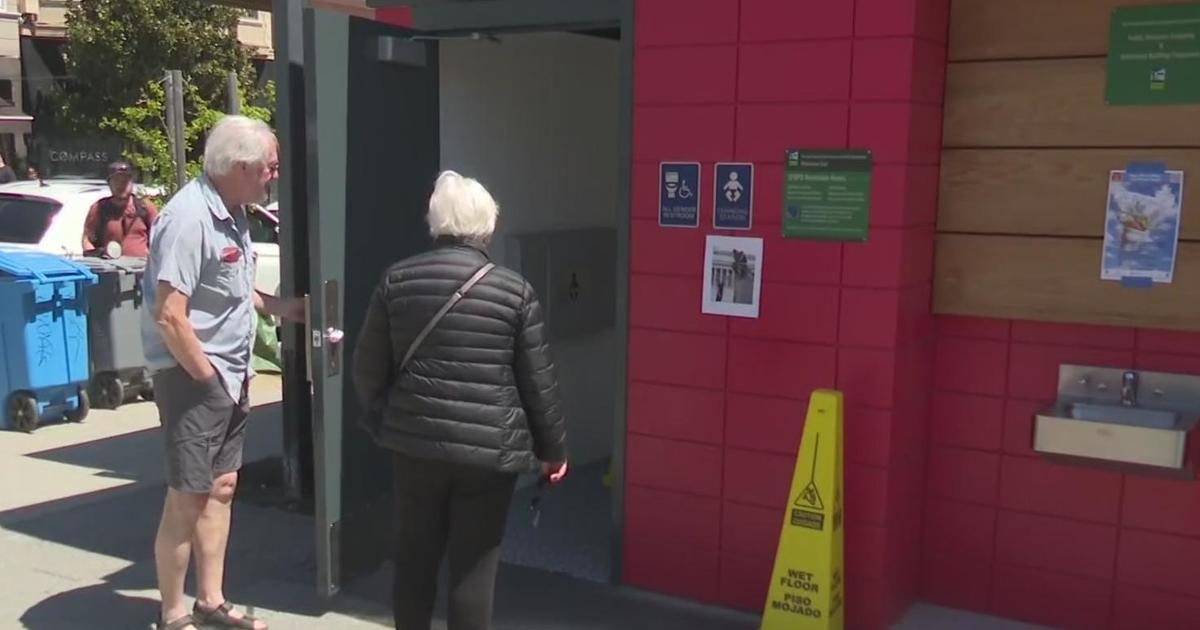Domestic Violence Victims Urge SF To Opt Out Of Undocumented Immigrant Custody Program
SAN FRANCISCO (CBS SF) -- Immigrant survivors of domestic violence and their supporters gathered in San Francisco Tuesday to urge the city to opt out of a federal program that could lead to the transfer of immigrants with criminal records from local law enforcement custody to the U.S. Department of Homeland Security.
While the Priority Enforcement Program (PEP) prioritizes individuals who pose a threat to public safety, domestic violence survivors and advocates gathered on the steps of City Hall Tuesday to say that it could stop victims of domestic violence from seeking help from police.
San Francisco supervisors David Campos, John Avalos and Eric Mar have drafted a resolution urging the city not to participate in PEP, stating that the program asks law enforcement to notify immigration officials about undocumented immigrants in custody before they are released and is simply a rebranding of U.S. Immigration and Customs Enforcement's Secure Communities program (S-Comm).
The drafted resolution states that PEP "is yet another mass deportation program that separates families" and "undermines community trust in law enforcement."
The draft resolution, introduced in September, cites a 2010 resolution in which the board resolved that S-Comm's police/ICE collaboration program would undermine San Francisco's values, tear working families apart and seriously harm public safety.
The draft resolution calls upon the San Francisco Sheriff's Department not to participate in PEP, stating that it is counter to the city's Due Process For All and Sanctuary City ordinances.
Both ordinances came under fire following the July 1 fatal shooting of San Francisco resident Kathryn Steinle by an undocumented immigrant who was released from custody instead of being turned over to immigration authorities.
The Rev. Deborah Lee, the director of the Interfaith Coalition for Immigration Rights, said San Francisco has gone to great lengths to protect domestic violence survivors in the city and said she doesn't want those efforts reversed by opting into the federal program.
Among the dozens of women, mostly Spanish-speaking, who protested PEP today were women who were themselves afraid of reaching out to law enforcement for fear of deportation and others who said that when they reached out the situation became worse, not better.
Lee said that to protect victims and witnesses of crime, there must be a clear separation between ICE and San Francisco's local law enforcement agencies.
Maria Hernandez, with Mujeres Unidas y Activas or United and Active Women, an organization of Latina immigrant women who promote personal transformation and support social and economic justice, told her story of living in an abusive relationship for 10 years.
Hernandez said she stayed in an abusive situation for years because she was fearful of what would happen if she spoke up. She said many women, not just herself, have feared that they will not get support from police.
Hernandez said she wants to live in a city where domestic violence survivors don't feel isolated and can feel safe because they know police are there to protect them, not deport them.
"Let's make sure we stop ICE-police cooperation," she said.
Cecilia Chavez, with Community United Against Violence, told a similar story about the abuse she suffered, but said when she discovered her partner had been drugging her, she reached out to police.
Chavez said police responded by arresting both her and her partner because she didn't have identification.
Chavez said she was put in jail and then turned over to ICE. She said that while in custody, she complained of a head injury she had suffered during the assault by her partner, but said law enforcement didn't provide her with medical attention.
"We want to be able to trust the police," Chavez said.
Hyejin Shim, a domestic violence advocate with the Asian Women's Shelter in San Francisco, said many of the women who come to the shelter as survivors of domestic abuse are undocumented immigrants or refugees.
"As advocates we are strongly opposed to PEP-Comm, which is only a tired revival of the deeply flawed and dangerous S-Comm," Shim said.
She said survivors of domestic abuse sometimes have criminal records, but that doesn't mean they aren't victims.
Shim said survivors have recounted stories in which their abusers threaten to not file residency papers or threaten to deport them if they call police. She said some abusers even call police first claiming that they are the victims of domestic violence, resulting in police arresting the victim instead of the abuser.
The threat of deportation heightens the risk of coming forward and discourages victims, Shim said.
She said Steinle's death is a tragedy but that scapegoating immigrants is not the appropriate response.



